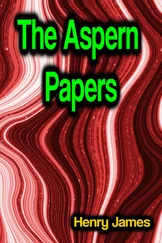Henry James - The American Scene
Здесь есть возможность читать онлайн «Henry James - The American Scene» — ознакомительный отрывок электронной книги совершенно бесплатно, а после прочтения отрывка купить полную версию. В некоторых случаях можно слушать аудио, скачать через торрент в формате fb2 и присутствует краткое содержание. Жанр: unrecognised, на английском языке. Описание произведения, (предисловие) а так же отзывы посетителей доступны на портале библиотеки ЛибКат.
- Название:The American Scene
- Автор:
- Жанр:
- Год:неизвестен
- ISBN:нет данных
- Рейтинг книги:3 / 5. Голосов: 1
-
Избранное:Добавить в избранное
- Отзывы:
-
Ваша оценка:
- 60
- 1
- 2
- 3
- 4
- 5
The American Scene: краткое содержание, описание и аннотация
Предлагаем к чтению аннотацию, описание, краткое содержание или предисловие (зависит от того, что написал сам автор книги «The American Scene»). Если вы не нашли необходимую информацию о книге — напишите в комментариях, мы постараемся отыскать её.
The American Scene — читать онлайн ознакомительный отрывок
Ниже представлен текст книги, разбитый по страницам. Система сохранения места последней прочитанной страницы, позволяет с удобством читать онлайн бесплатно книгу «The American Scene», без необходимости каждый раз заново искать на чём Вы остановились. Поставьте закладку, и сможете в любой момент перейти на страницу, на которой закончили чтение.
Интервал:
Закладка:
These were the felicities of the backward reach, which, however, had also its melancholy checks and snubs; nowhere quite so sharp as in presence, so to speak, of the rudely, the ruthlessly suppressed birth-house on the other side of the Square. That was where the pretence that nearly nothing was changed had most to come in; for a high, square, impersonal structure, proclaiming its lack of interest with a crudity all its own, so blocks, at the right moment for its own success, the view of the past, that the effect for me, in Washington Place, was of having been amputated of half my history. The grey and more or less "hallowed" University building—wasn't it somehow, with a desperate bravery, both castellated and gabled?—has vanished from the earth, and vanished with it the two or three adjacent houses, of which the birthplace was one. This was the snub, for the complacency of retrospect, that, whereas the inner sense had positively erected there for its private contemplation a commemorative mural tablet, the very wall that should have borne this inscription had been smashed as for demonstration that tablets, in New York, are unthinkable. And I have had indeed to permit myself this free fantasy of the hypothetic rescued identity of a given house—taking the vanished number in Washington Place as most pertinent—in order to invite the reader to gasp properly with me before the fact that we not only fail to remember, in the whole length of the city, one of these frontal records of birth, sojourn, or death, under a celebrated name, but that we have only to reflect an instant to see any such form of civic piety inevitably and for ever absent. The form is cultivated, to the greatly quickened interest of street-scenery, in many of the cities of Europe; and is it not verily bitter, for those who feel a poetry in the noted passage, longer or shorter, here and there, of great lost spirits, that the institution, the profit, the glory of any such association is denied in advance to communities tending, as the phrase is, to "run" preponderantly to the sky-scraper? Where, in fact, is the point of inserting a mural tablet, at any legible height, in a building certain to be destroyed to make room for a sky-scraper? And from where, on the other hand, in a facade of fifty floors, does one "see" the pious plate recording the honour attached to one of the apartments look down on a responsive people? We have but to ask the question to recognize our necessary failure to answer it as a supremely characteristic local note—a note in the light of which the great city is projected into its future as, practically, a huge, continuous fifty-floored conspiracy against the very idea of the ancient graces, those that strike us as having flourished just in proportion as the parts of life and the signs of character have not been lumped together, not been indistinguishably sunk in the common fund of mere economic convenience. So interesting, as object-lessons, may the developments of the American gregarious ideal become; so traceable, at every turn, to the restless analyst at least, are the heavy footprints, in the finer texture of life, of a great commercial democracy seeking to abound supremely in its own sense and having none to gainsay it.
Let me not, however, forget, amid such contemplations, what may serve here as a much more relevant instance of the operation of values, the price of the as yet undiminished dignity of the two most southward of the Fifth Avenue churches. Half the charm of the prospect, at that extremity, is in their still being there, and being as they are; this charm, this serenity of escape and survival positively works as a blind on the side of the question of their architectural importance. The last shade of pedantry or priggishness drops from your view of that element; they illustrate again supremely your grasped truth of the comparative character, in such conditions, of beauty and of interest. The special standard they may or may not square with signifies, you feel, not a jot: all you know, and want to know, is that they are probably menaced—some horrible voice of the air has murmured it—and that with them will go, if fate overtakes them, the last cases worth mentioning (with a single exception), of the modest felicity that sometimes used to be. Remarkable certainly the state of things in which mere exemption from the "squashed" condition can shed such a glamour; but we may accept the state of things if only we can keep the glamour undispelled. It reached its maximum for me, I hasten to add, on my penetrating into the Ascension, at chosen noon, and standing for the first time in presence of that noble work of John La Farge, the representation, on the west wall, in the grand manner, of the theological event from which the church takes its title. Wonderful enough, in New York, to find one's sell, in a charming and considerably dim "old" church, hushed to admiration before a great religious picture; the sensation, for the moment, upset so all the facts. The hot light, outside, might have been that of an Italian piazzetta; the cool shade, within, with the important work of art shining through it, seemed part of some other-world pilgrimage—all the more that the important work of art itself, a thing of the highest distinction, spoke, as soon as one had taken it in, with that authority which makes the difference, ever afterwards, between the remembered and the forgotten quest. A rich note of interference came, I admit, through the splendid window-glass, the finest of which, unsurpassably fine, to my sense, is the work of the same artist; so that the church, as it stands, is very nearly as commemorative a monument as a great reputation need wish. The deeply pictorial windows, in which clearness of picture and fulness of expression consort so successfully with a tone as of magnified gems, did not strike one as looking into a yellow little square of the south-they put forth a different implication; but the flaw in the harmony was, more than anything else, that sinister voice of the air of which I have spoken, the fact that one could stand there, vibrating to such impressions, only to remember the suspended danger, the possibility of the doom. Here was the loveliest cluster of images, begotten on the spot, that the preoccupied city had ever taken thought to offer itself; and here, to match them, like some black shadow they had been condemned to cast, was this particular prepared honour of "removal" that appeared to hover about them.
One's fear, I repeat, was perhaps misplaced—but what an air to live in, the shuddering pilgrim mused, the air in which such fears are not misplaced only when we are conscious of very special reassurances! The vision of the doom that does descend, that had descended all round, was at all events, for the half-hour, all that was wanted to charge with the last tenderness one's memory of the transfigured interior. Afterwards, outside, again and again, the powers of removal struck me as looming, awfully, in the newest mass of multiplied floors and windows visible at this point. They, ranged in this terrible recent erection, were going to bring in money—and was not money the only thing a self-respecting structure could be thought of as bringing in? Hadn't one heard, just before, in Boston, that the security, that the sweet serenity of the Park Street Church, charmingest, there, of aboriginal notes, the very light, with its perfect position and its dear old delightful Wren-like spire, of the starved city's eyes, had been artfully practised against, and that the question of saving it might become, in the near future, acute? Nothing, fortunately, I think, is so much the "making" of New York, at its central point, for the visual, almost for the romantic, sense, as the Park Street Church is the making, by its happy coming-in, of Boston; and, therefore, if it were thinkable that the peculiar rectitude of Boston might be laid in the dust, what mightn't easily come about for the reputedly less austere conscience of New York? Once such questions had obtained lodgment, to take one's walks was verily to look at almost everything in their light; and to commune with the sky-scraper under this influence was really to feel worsted, more and more, in any magnanimous attempt to adopt the aesthetic view of it. I may appear to make too much of these invidious presences, but it must be remembered that they represent, for our time, the only claim to any consideration other than merely statistical established by the resounding growth of New York. The attempt to take the aesthetic view is invariably blighted sooner or later by their most salient characteristic, the feature that speaks loudest for the economic idea. Window upon window, at any cost, is a condition never to be reconciled with any grace of building, and the logic of the matter here happens to put on a particularly fatal front. If quiet interspaces, always half the architectural battle, exist no more in such a structural scheme than quiet tones, blest breathing-spaces, occur, for the most part, in New York conversation, so the reason is, demonstrably, that the building can't afford them. (It is by very much the same law, one supposes, that New York conversation cannot afford stops.) The building can only afford lights, each light having a superlative value as all aid to the transaction of business and the conclusion of sharp bargains. Doesn't it take in fact acres of window-glass to help even an expert New Yorker to get the better of another expert one, or to see that the other expert one doesn't get the better of him? It is easy to conceive that, after all, with this origin and nature stamped upon their foreheads, the last word of the mercenary monsters should not be their address to our sense of formal beauty.
Читать дальшеИнтервал:
Закладка:
Похожие книги на «The American Scene»
Представляем Вашему вниманию похожие книги на «The American Scene» списком для выбора. Мы отобрали схожую по названию и смыслу литературу в надежде предоставить читателям больше вариантов отыскать новые, интересные, ещё непрочитанные произведения.
Обсуждение, отзывы о книге «The American Scene» и просто собственные мнения читателей. Оставьте ваши комментарии, напишите, что Вы думаете о произведении, его смысле или главных героях. Укажите что конкретно понравилось, а что нет, и почему Вы так считаете.












